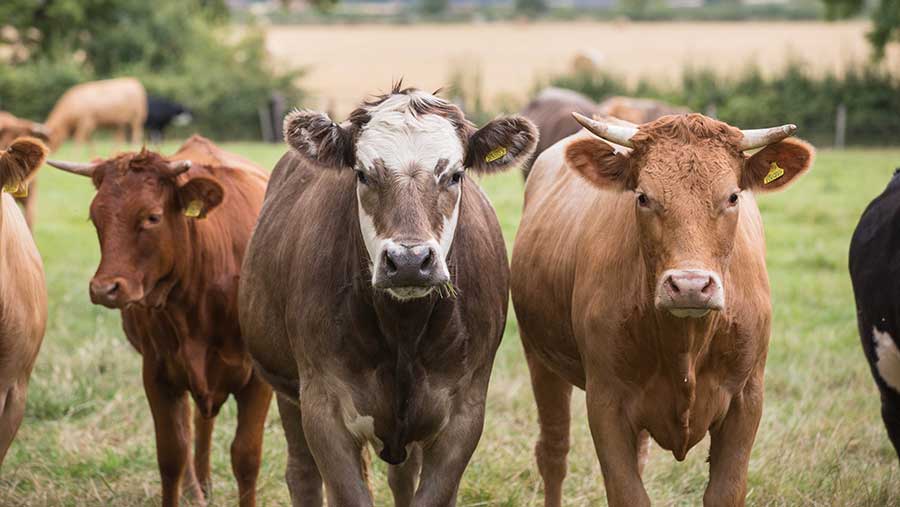UK invests £9m to tackle endemic disease in livestock
 © Tim Scrivener
© Tim Scrivener Fourteen research projects are to receive a share of £9m of government funding to tackle endemic disease in the UK livestock sector, to improve the productivity, health and welfare of animals.
Phase two of the £11.5m Endemic Livestock Diseases Initiative has made grants available of between £500,000 to £1m for each project to tackle challenges associated with endemic disease in livestock.
The projects span the breadth of the livestock sector, encompassing pigs, poultry, beef, sheep and dairy, with significant emphasis on digital agriculture and machine learning.
See also: Emerging livestock diseases – another unwanted climate change effect
Nine of the projects incorporate cutting-edge technologies to advance disease monitoring, diagnosis and prevention.
The research includes looking into vaccines for bovine respiratory disease complex, precision solutions for controlling fasciolosis in sheep, and artificial intelligence to monitor changes in social behaviour for the early detection of disease in dairy cattle.
The initiative is backed by key UK partners, including the Biotechnology and Biological Sciences Research Council (BBSRC), Defra, the Department of Agriculture, Environment and Rural Affairs of Northern Ireland and the Scottish government.
Christine Middlemiss, Defra chief veterinary officer, said the funding brings together farmers, vets and researchers “to develop and test new solutions to some of our most serious animal health challenges on farm, making a real difference to the health and wellbeing of the UK’s livestock”.
Guy Poppy, BBSRC interim executive chairman, added: “Endemic diseases in the UK livestock sector pose significant challenges to animal welfare, productivity and sustainable farming practices.
“By bringing together the collective expertise of academia, industry and end-users, we are confident this initiative will lead to ground-breaking advancements in disease control, fostering a healthier and more productive livestock sector.”
